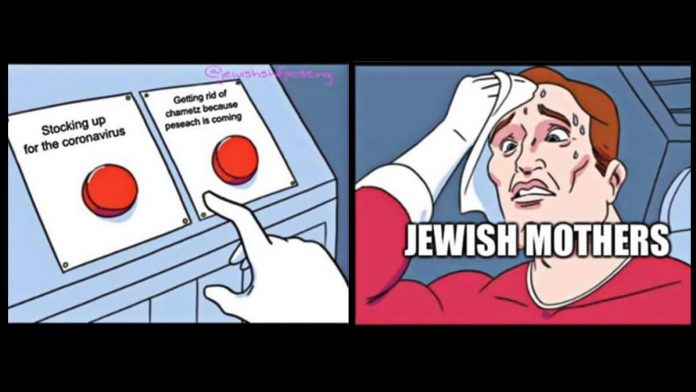I’ve been reading a lot of posts and articles about why we should be stocking our pantries and medicine cabinets against the possibility of illness, quarantine, and/or disrupted supply chains. The most compelling piece I’ve read thus far is one in Scientific American by Zeynep Tufekci.
She argues that being prepared is our civic duty and is something we can do as a favour to those who cannot prepare. “We should prepare,” she writes, “so that we can help lessen the risk for everyone.”
One suggestion that a lot of people are making is: stock up on dried foods, and on the things that members of your household like to eat. This way if you become ill (or if there is a quarantine, or if you are staying home to avoid infection or to reduce strain on grocery workers who may be ill, or if supply chains are disrupted because of widespread illness) you’ll have what you need. My kid’s favourite foods include bagels, pasta, and toaster waffles. Oh, and granola bars. And buttered English muffins.
And on the Jewish calendar we’re five weeks away from Pesach, when it’s customary to remove all of the leaven from one’s home. So should I be trying to “eat down” all the hametz in my home in the coming month to make it easier to clean for Pesach in the ways that I want to do? Or should I be picking up an extra box of pasta, an extra box of blueberry Eggos, and an extra box of shells and cheese every time I go to the grocery store, so that we’re well-prepared in the event that we need to stay home?
I can argue that Jewishly I have a civic obligation to do what is best for the most vulnerable in the general population (that’s the thrust of Torah’s repeated injunction to care for the widow, the orphan, and the stranger). That may mean making sure I have two weeks’ worth of shelf-stable food on hand, and stocking up on the things my kid will actually eat – because as Tufekci argues, preparing is “one of the most pro-social, altruistic things you can do in response to potential disruptions of this kind.”
I can also argue that Jewishly I have a religious obligation to remove hametz for Pesach: that’s a practice I’ve taken on in recent years and it matters to me both practically and spiritually. So I’m laying in a store of the wheat-filled foods my kid likes to eat… and during Pesach, I will move them to the extra freezer in the garage so that they are not in my home proper, and I will “sell” them to a non-Jewish friend, and will declare them temporarily not mine. It’s a legal fiction, but this year a very useful one.
Intellectually I know that selling my hametz means there’s no problem here. But emotionally I’m finding this jarring. It feels truly strange to be stocking up now on foods that in any other year I would be trying to consume and not replace. One way to understand Pesach is as a spiritual call to leave familiar constriction and go, even if we don’t feel ready. Buying extra stuff to have on hand is the opposite of “drop everything and go” – though the “not feeling ready” part still holds.
It feels weird to be buying extra hametz when Pesach is little more than a month away. But I accept Tufekci’s argument that preparing for the possibility of staying home (if I can afford a few extra groceries every time I shop, which I can) is my civic obligation, and I think it’s a Jewish obligation as well. I’m willing to live with some cognitive dissonance in order to fulfill that obligation, even as I also prepare to fulfill a different obligation that will temporarily make some of these foods not-mine.
Tradition says we left Egypt as a mixed multitude; it wasn’t just we who fled Pharaoh. An illness that spreads like this one is a powerful reminder that we are always a “mixed multitude.” As a society, we are only as healthy as those who are most at-risk. Preparing now is what I can do to lessen the strain on the system later, and thereby to help those who may be harder-hit than I expect to be… even if that means I’ll be schlepping an extra few boxes of pasta into and out of storage this year.
By Rabbi Rachel Barenblat
Rabbi Rachel Barenblat, named in 2016 by The Forward as one of America’s Most Inspiring Rabbis, was ordained by ALEPH: Alliance for Jewish Renewal as a rabbi in 2011 and as a mashpi’ah ruchanit (spiritual director) in 2012. This article first appeared on her blog, The Velveteen Rabbi.

To read or download the full May issue PDF of the Chronicle, click here
To keep up to date on COVID-19 related community news, click here
Portal to the Jewish Community: to see a list of all the Jewish organisations in Cape Town with links to their websites, click here
To receive the Chronicle each month in your inbox instead of your postbox please email editor@ctjc.co.za and we will make it happen.
Follow the Chronicle: Facebook | Instagram | Twitter | LinkedIn











